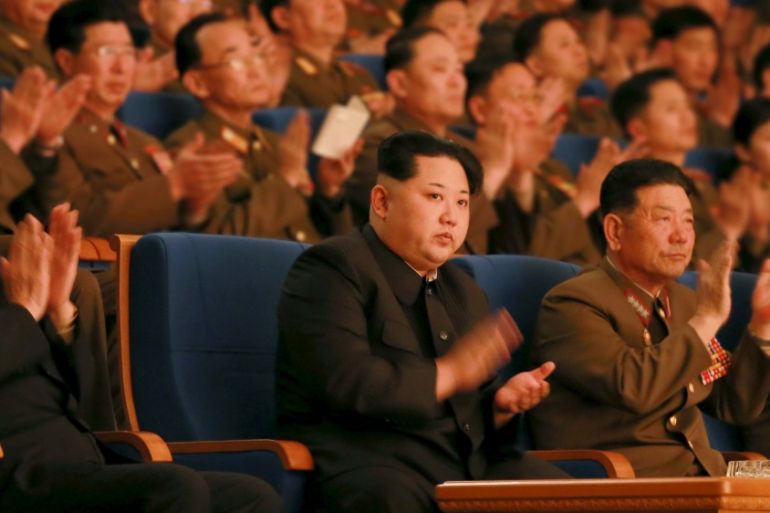US, China call for tougher sanctions on North Korea
Beijing, Pyongyang’s ally, teams up with Washington in a rare move to respond to latest nuclear test and rocket launch.

The United States and China have presented a draft resolution to the United Nations Security Council for stronger sanctions against North Korea in response to Pyongyang’s latest nuclear test and rocket launch.
Samantha Power, US envoy to the UN, said the draft, which for the first time would subject cargo ships leaving and entering North Korea to mandatory inspections, would significantly increase pressure on Pyongyang.
“It is a major upgrade and there will be, provided it goes forward, pressure on more points, tougher, more comprehensive, more sectors. It’s breaking new ground in a whole host of ways,” Power said, before heading into a closed meeting in which the US planned to circulate the draft to all 15 council members.
READ MORE: Q&A – Does launch take North Korea closer to nuclear weapon?
The draft is the result of an agreement between the US and China, North Korea’s main ally, whose involvement signals a policy shift with regard to its neighbour. The council is expected to vote on the draft over the weekend.
“We are opposed to any nuclear testing and the launch testing of ballistic missile technology and we hope this resolution will help to prevent further occurrences of this nature,” China’s Ambassador Liu Jieyi said, following the meeting.
However, China did not want to exhort too much pressure because a collapse of the North Korean system could lead to “an expanded South Korea on China’s border with its US allies there as well,” Al Jazeera’s Harry Fawcett, reporting from Seoul, said.
“The question is, as always, whether North Korea will get around these sanctions and also the level of enforcement of such sanctions. That has been extremely difficult to pin down on that border between China and North Korea,” he said.
“What is significant, though, is that we have had reports from the northern side of that border saying that things have changed, at least in the short term. North Korean ships not coming into port, Chinese trucks coming back from North Korea empty.”
Troy Stangarone, a senior director for congressional affairs and trade at the Korean Economic Institute, told Al Jazeera that Pyongyang was likely to strike back.
“We should expect North Korea to try to respond with some kind of provocation. Most likely this will be something in terms of cyber warfare or some other area where it is hard to identify North Korea as an actual perpetrator,” he said, speaking from Washington DC.
Draft details
According to Power, the sanctions would prohibit the sale of small arms and other conventional weapons to North Korea, closing a loophole in earlier resolutions.
Power said the sanctions would also limit and in some cases ban exports of coal, iron, gold, titanium and rare earth minerals from North Korea, and would ban countries from supplying aviation fuel, including rocket fuel, to the country.
The resolution also imposes financial sanctions targeting North Korean banks and assets, and bans all dual-use nuclear and missile-related items.
Items such as luxury watches, snowmobiles, recreational water vehicles and lead crystal were also added to a long list of luxury goods that North Korea is not allowed to import.
North Korea started off the new year with what it claims was its first hydrogen bomb test on January 6 and followed that up with the launch of a satellite on a rocket on February 7 that was condemned by much of the world as a test of banned missile technology.
Over the past 20 years, North Korea has conducted four nuclear tests and launched six long-range rockets – all in violation of Security Council resolutions.